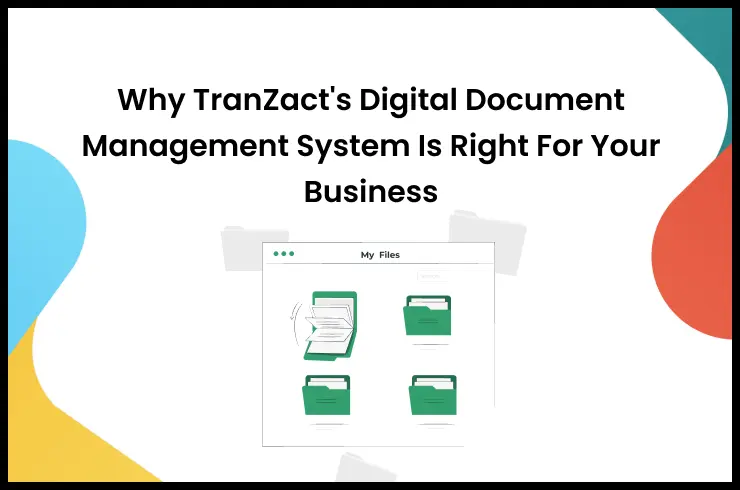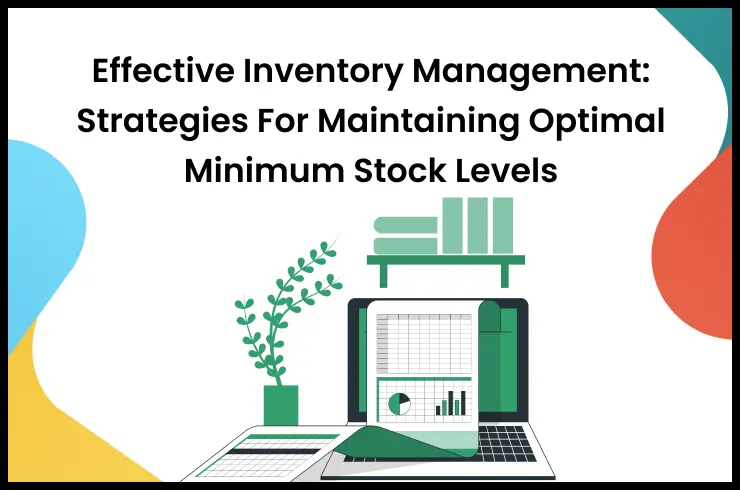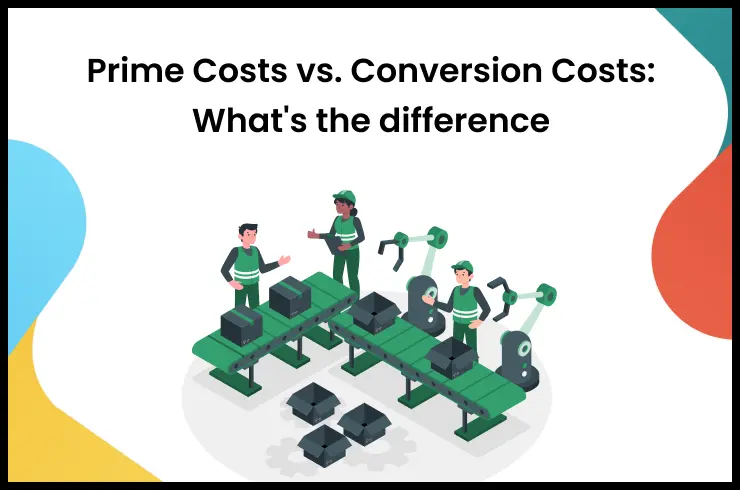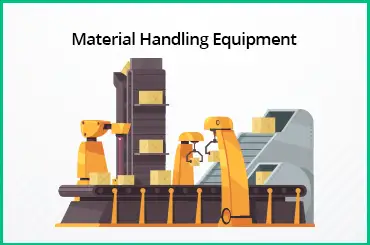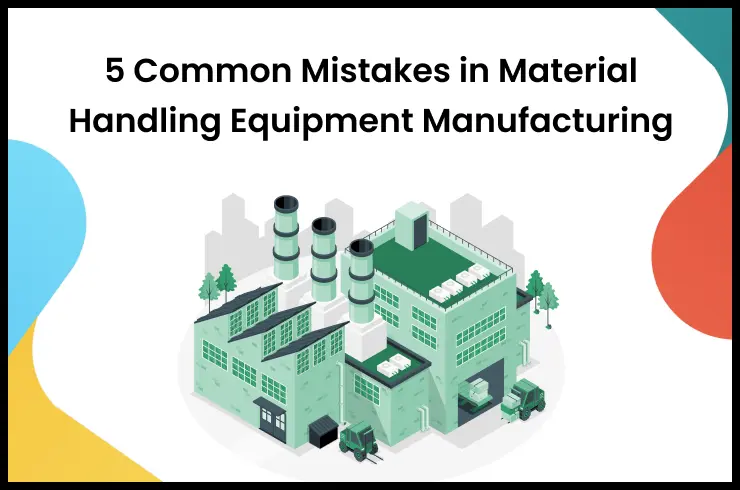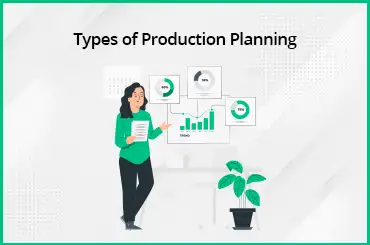Before knowing how to make a BOM, it's essential to understand the meaning of a Bill of Material (BOM). If your organization is involved in custom manufacturing, then you must be aware of the importance of product design, the manufacturing process, the materials for finished goods, and BOM. All these elements are needed to properly manage the production of new products, and here the bill of material plays a crucial role.
A BOM is a method of making a proper list of the materials, assembly lines, parts, and design of the product before beginning manufacturing. The BOM is leveraged by various departments in the business, which makes it important for accurate management.
Let's go through the details of BOM, the procedure of how to create BOM, along with its key elements.
What Is a Bill of Material?
A Bill of Material or BOM is a comprehensive list of raw materials, sub-assemblies, intermediate assemblies, final assemblies, parts, items, drawings, and other things that are used to produce any standard goods. It can be said that a BOM is a recipe used to create the finished goods followed by a hierarchical format. Depending on the product, BOM may also include instructions on how to use the parts and procure materials.
BOM extends to all the common disciplines like design and engineering, document management, manufacturing process, purchasing, contract management, and others. All this information helps the manufacturer to achieve quality production. For instance, the engineer's team makes the engineering BOM (EBOM), and the manufacturing team is dependable on the manufacturing BOM (MBOM).
Let's understand more about EOMBs and MBOMs and the differences between them in the below section.
Read Also: E-Way bill
MBOMs vs EBOMs
Before knowing how to make a BOM, it’s very important to understand the two essential subsets in BOM creation: MBOM vs. EBOM.
| Aspect | MBOM | EBOM |
|---|---|---|
| Purpose | Details the manufacturing process | Used for product design |
| Content | Parts, assembly processes, procurement info | CAD drawings, design details |
| Used By | Manufacturing team | Engineering team |
| Focus | Manufacturing efficiency and accuracy | Design accuracy and innovation |
| Updates | Updated as manufacturing processes change | Updated as design changes occur |
| Integration | Linked with procurement and manufacturing tools | Linked with design and engineering tools |
| If you are looking for a solution to create an accurate, comprehensive, and multilevel Bill of Material for your manufacturing business, then TranZact can help you achieve this. |
Read Also: Credit Note
Necessary Elements of a Good BOM
The following elements are important when it comes to how to create BOM and must be included to achieve the quality standard of the finished goods.
- BOM Level: Hierarchical representation of all parts and assemblies.
- Unique Number of Parts: A unique identifier for each part.
- Name of Each Part: A unique name for easy identification.
- Description of Each Part: Detailed information about the part’s use.
- Phases of Manufacturing: Listing of all manufacturing phases.
- Procurement Type: Information on how to acquire each part.
- Quantity: The required amount of each part.
- Unit of Measurement: The measurement unit for each part.
- BOM Notes: Additional comments or information.
How to Create BOMs Easily?
BOM creation and management can be automated with the use of BOM software. This software provides an accurate bill of material format that assists production teams in converting virtual designs into reality with ease. BOMs are likely to be handled by multiple team members, which involves several phases in the manufacturing process towards the final production. So, handling bill of material using a spreadsheet is not an ideal solution as the information needs to be validated across teams. Without software, these processes can lead to costly human errors and affect your entire production cycle. Another major factor that must be accounted for when handling a bill of material is tracking the version of the document being shared and used by your internal team. So, you need to establish a reliable system for BOM management in your business that can be accessed with transparency and accurate data within your production unit. As a solution, an ERP system with a production module is the best way to create and manage BOMs for manufacturers. It can act as a single source of data for your company that ensures proper work synchronization. Having the best ERP software for your business will bring everyone on the same dashboard to stay up-to-date with diverse BOM.
Read Also: GSTIN
How to Make the Most out of Your BOMs?
Software that offers expert, cloud-based ERP solutions like TranZact offers BOM creation features to manage multiple and interconnected production stages. A BOM designed in CAD can be easily transferred to the ERP with a single click that conforms to your supply chain. This eliminates human errors while re-entering the data and saves you time as well. Also, an ERP system makes the procurement of parts easy while creating and managing BOMs. In case the engineer is busy working and designing another engineering bill of materials, your team can transparently access the EBOM and see the important long-lead items required for manufacturing. They can place the order early and acquire all the items before production begins, followed by an automatic update in your inventory system. Easy access to EBOMs and MBOMs makes the manufacturing process fast and saves lots of time that goes into consulting various departments. Smartly managing complex BOMs lets you modify requirements by eliminating or adding the required layer of details needed for an effective manufacturing process to make the final goods.
Refine Your BOM Creation Process for Enhanced Production
Now that you’re aware of all the details about the bill of material and how to make a BOM with all its necessary elements, why not adopt BOM software to streamline your bill of material processes? Here, automation can be the best choice to create and manage your BOMs as a professional. TranZact provides production solutions with multilevel BOM functionalities that can be reviewed and managed in real time to avoid production delays.
FAQs
Q1. What is the difference between manufacturing BOM and engineering BOM?
Manufacturing BOM contains in-depth information about the manufacturing process, including the parts details and procurement of material. Engineering BOM consists of computer-aided design developed by a team of professional engineers to visualize components from a design perspective.
Q2. What is the difference between sales BOM and manufacturing BOM?
Sales BOM also known as marketing BOM, represents product requirements and component variations for customer understanding at the sales stage. On the other hand, manufacturing BOM represents the materials and subassemblies that are used in the making of new products.
Q3. How are EBOM and MBOM different in the context of team centres?
EBOM, or engineering BOM is the configuration of the product design, whereas the MBOM, or manufacturing BOM, is the configuration to show how the product will be made and assembled.
Q4. Why is it important to have a comprehensive BOM?
A comprehensive BOM ensures that all materials, parts, and assemblies are accurately listed and organized. This helps streamline the manufacturing process, reducing errors, and ensuring that the finished product meets quality standards. A detailed BOM also aids various departments in the business, from design and engineering to purchasing and contract management, ensuring smooth communication and coordination throughout the production cycle.
Q5. Why is adopting BOM software beneficial for manufacturers?
Adopting BOM software streamlines the creation and management of BOMs, ensuring accuracy and reducing the risk of human errors. It provides a unified platform for teams to access and validate information, eliminating the challenges of using spreadsheets. Additionally, BOM software can integrate with ERP systems, allowing for real-time updates and synchronization across the production unit.
Q6. How can ERP systems enhance the BOM creation process?
ERP systems with a production module serve as a single source of data for a company, ensuring proper work synchronization. They allow for easy transfer of BOMs designed in CAD, automating procurement processes, and providing transparent access to both EBOMs and MBOMs. This leads to faster manufacturing processes, timely procurement of parts, and efficient management of complex BOMs.
Q7. What are the essential elements to include in a quality BOM?
A quality BOM should include elements such as BOM level, unique number and name for each part, a comprehensive description of each part, phases of manufacturing, procurement type, quantity, unit of measurement, and BOM notes. These elements ensure clarity, accuracy, and ease of understanding for everyone involved in the manufacturing process.







